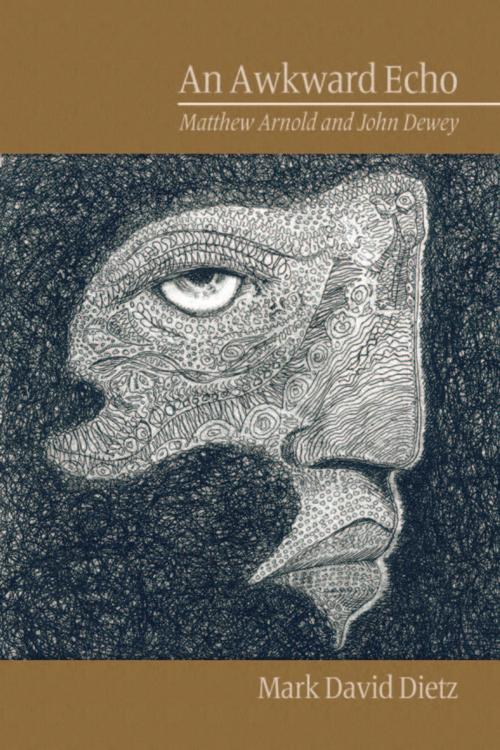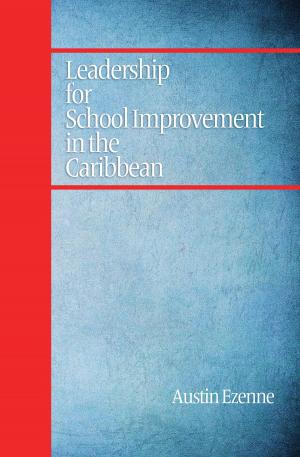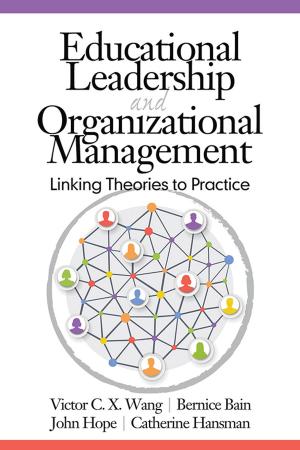An Awkward Echo
Matthew Arnold and John Dewey
Nonfiction, Reference & Language, Education & Teaching, Educational Theory, Curricula, Higher Education| Author: | Mark David Dietz | ISBN: | 9781607524007 |
| Publisher: | Information Age Publishing | Publication: | February 1, 2010 |
| Imprint: | Information Age Publishing | Language: | English |
| Author: | Mark David Dietz |
| ISBN: | 9781607524007 |
| Publisher: | Information Age Publishing |
| Publication: | February 1, 2010 |
| Imprint: | Information Age Publishing |
| Language: | English |
Matthew Arnold, 19th century English poet, literary critic and school inspector, felt that each age had to determine that philosophy that was most adequate to its own concerns and contexts. This study looks at the influence that Matthew Arnold had on John Dewey and attempts to fashion a philosophy of education that is adequate for our own peculiarly awkward age. Today, Arnold and Dewey are embraced by opposing political positions. Arnold, as the apostle of culture, is often advocated by conservative educators who see in him a support for an education founded on great books and Victorian values, while Dewey still has a notably liberal coloring and is not too infrequently tarred for the excesses of progressive education, even those for which he bears no responsibility at all. Both, no doubt, are misread by those who rather carelessly use them as idols for their own politics of education. This study proposes a pluralistic approach to education in which pluralism means not only plurality of voices, but also plurality of processes. Using a model built out of a study of rhetoric and hermeneutics, four aspects of mind are indentified that draw Arnold and Dewey into close correspondence. These aspects are the tentacle mind (using Dewey’s favorite metaphor for breaking down the barrier between mind and body), the critical mind (which builds on the concepts of criticism that animated both Arnold and Dewey’s approach to experience), the intentional mind (which attempts a long overdue rehabilitation of the concept of authority and an expansion upon the increasingly apparent limitations of readerresponse theory) and the reflectiveresponse mind (in which the contemplative mind is treated to that active quality that makes it more a true instrumentality and less an obscuring mechanism of isolation). Dewey echoed Matthew Arnold who himself echoed so many of the voices that preceded and were contemporary with his own. Theirs were awkward echoes, as all such echoes invariably are. They caught at the intentionality of those voices they echoed, trying for nearness, but hoping, at least, for adequacy. Awkward, but adequate, is what this study offers, but it may well be what we most need right now.
Matthew Arnold, 19th century English poet, literary critic and school inspector, felt that each age had to determine that philosophy that was most adequate to its own concerns and contexts. This study looks at the influence that Matthew Arnold had on John Dewey and attempts to fashion a philosophy of education that is adequate for our own peculiarly awkward age. Today, Arnold and Dewey are embraced by opposing political positions. Arnold, as the apostle of culture, is often advocated by conservative educators who see in him a support for an education founded on great books and Victorian values, while Dewey still has a notably liberal coloring and is not too infrequently tarred for the excesses of progressive education, even those for which he bears no responsibility at all. Both, no doubt, are misread by those who rather carelessly use them as idols for their own politics of education. This study proposes a pluralistic approach to education in which pluralism means not only plurality of voices, but also plurality of processes. Using a model built out of a study of rhetoric and hermeneutics, four aspects of mind are indentified that draw Arnold and Dewey into close correspondence. These aspects are the tentacle mind (using Dewey’s favorite metaphor for breaking down the barrier between mind and body), the critical mind (which builds on the concepts of criticism that animated both Arnold and Dewey’s approach to experience), the intentional mind (which attempts a long overdue rehabilitation of the concept of authority and an expansion upon the increasingly apparent limitations of readerresponse theory) and the reflectiveresponse mind (in which the contemplative mind is treated to that active quality that makes it more a true instrumentality and less an obscuring mechanism of isolation). Dewey echoed Matthew Arnold who himself echoed so many of the voices that preceded and were contemporary with his own. Theirs were awkward echoes, as all such echoes invariably are. They caught at the intentionality of those voices they echoed, trying for nearness, but hoping, at least, for adequacy. Awkward, but adequate, is what this study offers, but it may well be what we most need right now.















